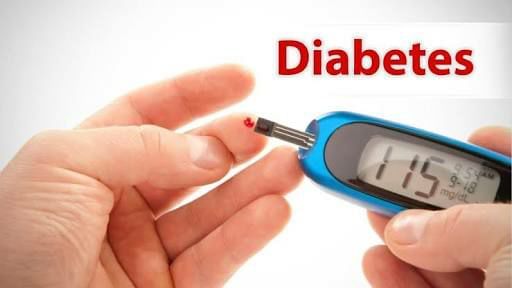Diabetic Care For Homepathy
What is diabetes mellitus?
Diabetes mellitus is the most common form of diabetes occurring when the pancreas secretes insufficient amounts of insulin or no insulin at all. As a consequence, the person ends up with too much sugar or glucose in their bloodstream, and not enough gets into their cells to be burned as energy. Insulin is a hormone produced in the pancreas, which is needed to turn sugar and other food into energy.
There are two types of diabetes:-
1. Type 1 diabetes: sometimes called juvenile diabetes or insulin-dependent diabetes, type 1 diabetes means your body cannot produce insulin because the beta cells (cells which produce insulin) in the pancreas are destroyed. Type 1 diabetes occurs more frequently in children and young adults, but accounts for less than 10% of the total diabetes cases.
In this type of diabetes, the role of homeopathy is mostly limited to preventing complications, such as diabetic neuropathy, nephropathy, etc. I have heard of cases where homeopathic treatment has stimulated the pancreas to start producing insulin. Yes, it is possible, but these cases are few and far between.
2. Type 2 diabetes: the majority of diabetics fall in this category. In type 2 diabetes the body doesn’t make enough insulin or doesn’t properly utilize its insulin supply. While many type 2 diabetics take medication to lower their blood glucose, this type of diabetes can be managed with diet, exercise and weight loss where required. Two main contributing factors for type 2 diabetes are obesity and age. In both cases, the body becomes less efficient. When the blood glucose rises above normal levels, people experience different symptoms.
Most common symptoms and reasons they occur
- Fatigue: with insufficient insulin production, cells don’t get enough energy and cannot work efficiently. This causes fatigue.
- Increased urination: all blood is filtered by the kidneys. Excess glucose in the blood must also be filtered by the kidneys, which can re-absorb and recycle normal amounts of glucose. However, when the blood glucose is too high, it can exceed the kidneys’ ability to re-absorb it. The excess glucose then goes out in the urine, literally dragging water with it. This means increased urine production and therefore increased urination.
- Increased thirst: increased urination creates increased thirst.
- Blurred vision: with elevated blood glucose, the extra glucose can get into the lens of the eye. When this happens, water again follows it (as it does passing through the kidneys). When extra water enters the lens, it alters its shape. The lens loses its ability to focus light for the eye, which is perceived as blurred vision.
- Yeast infections: yeast live well in the environment of the vagina (as well as under the foreskin of the penis). When the blood glucose is high, there is also more glucose in the vagina as well, and yeast organisms live and multiply on this sugar.
- Weight loss: losing glucose through urine means losing calories. As your body starves for nutrition, weight drops off. Unfortunately muscle is lost as well in addition to fat, making one feel weak.
- Muscle and nerve problems: as muscle mass is lost, the tissue breakdown can result in loss of electrolytes (salts present in all tissues of the body, especially abundant in the muscles). When electrolytes are lost, the muscles become prone to a cramping pain. The increased glucose also passes into the nerve tissues. This radically alters the electrolytes in the nerves. The affected nerves can give false messages to the brain, and this is perceived as numbness, tingling or even pain.
- Brain function: the brain does not like an environment of high glucose. This high glucose environment can cause mood fluctuations and the inability to concentrate.
- No symptoms: the most common symptom of high blood sugars is to have no symptoms at all. As a result there are many people who don’t know that they have diabetes.
Homeopathic treatment for diabetes
One of the first questions most people ask a homeopath is “should I discontinue my medication to start homeopathic treatment?” the answer is a big resounding “no.” homeopathic remedies can be taken in conjunction with prescription medications. In time, as general health improves and blood sugar levels are normalized, allopathic medication can be reduced gradually (with the knowledge and support of the doctor who prescribed it in the first place) until it is no longer required. Remember that homeopathy is healing all of you – not just regulating your blood sugar. With patience and perseverance, becoming drug-free is a definite possibility.



+1.svg)
